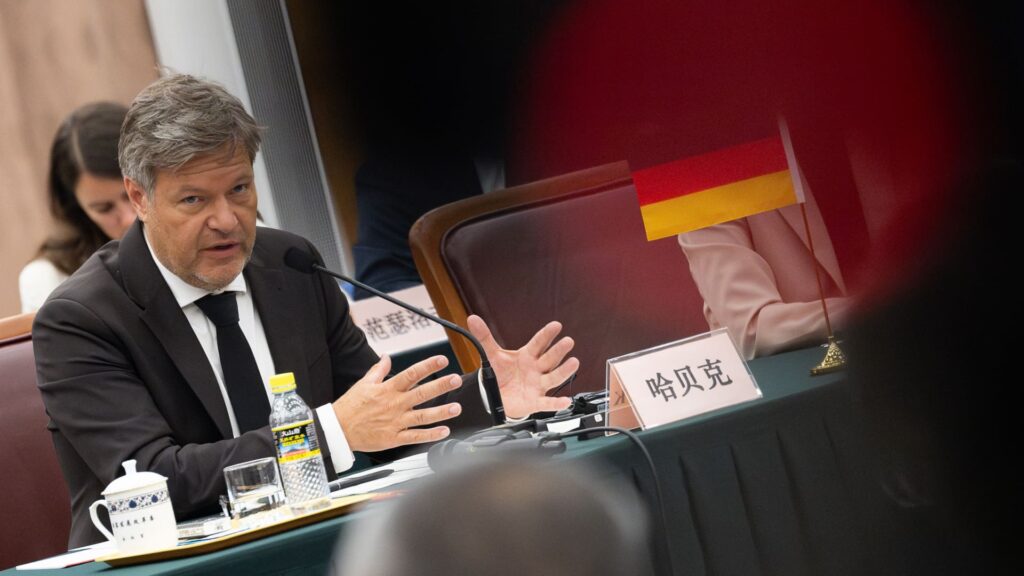German Economy Minister Robert Habeck told Chinese officials in Beijing on Saturday that the EU’s proposed tariffs on Chinese goods were not a “punishment.”
Habeck is the first visit by a senior European official to China since Brussels proposed imposing steep tariffs on imports of Chinese-made electric vehicles (EVs) to combat what the EU sees as excessive subsidies.
China warned on Friday ahead of his arrival that escalating friction with the European Union over electric vehicles could trigger a trade war.
“It is important to understand that these are not punitive tariffs,” Harbeck told the first plenary session of the Climate and Transition Dialogue.
The economy minister said that countries such as the United States, Brazil and Turkey have introduced punitive tariffs, but the European Union has not. “Europe is doing things differently.”
Habeck said that for nine months, the European Commission had scrutinized whether Chinese companies had unfairly benefited from subsidies.
He said any countervailing duty measures resulting from the EU review “are not punitive”, adding that such measures were intended to compensate Beijing for the advantages it gave Chinese companies.

“Common and equal market access standards should be achieved,” Habeck said.
Habeck said during a meeting with Zheng Shanjie, director of China’s National Development and Reform Commission, that the EU’s proposed tariffs aim to create a level playing field with China.
Zheng responded: “We will do everything we can to protect Chinese companies.”
The EU’s provisional tariffs will come into effect on July 4, and the investigation will last until November 2, when final tariffs may be imposed, which usually lasts for five years.
Habeck told Chinese officials that the EU report’s conclusions should be discussed.
“It is important now to seriously seize the opportunity provided by the report to engage in dialogue or negotiation,” Habeck said.
climate dialogue
While trade tensions were a key topic of discussion, the goal of the meeting was to deepen cooperation on a green transition between the two industrialized countries.
This is the first plenary meeting of the climate and transformation dialogue since Germany and China signed a memorandum of understanding on cooperation on climate change and green transformation in June last year.
Countries acknowledge that they have a special responsibility to prevent global warming from rising 1.5 degrees Celsius (2.7 degrees Fahrenheit) above pre-industrial temperatures, a level scientists say is critical to preventing the worst consequences.
China will add nearly 350 gigawatts (GW) of new renewable energy installation capacity in 2023, more than half of the global total, and may exceed its 2030 target this year if the world’s second-largest economy maintains this pace. (IEA) said.
Habeck praised the expansion of renewable energy in China, but noted that it is important not to focus solely on the expansion of renewable energy, but also on overall carbon dioxide emissions.
By 2023, coal will still account for nearly 60% of China’s electricity supply.
China, India and Indonesia account for nearly 75% of global coal consumption, as governments tend to prioritize energy security, availability and cost over carbon emissions.
China is building coal-fired power plants as a safety measure, Zheng said.
“I still believe that large-scale expansion of coal power can be done differently if the impact of renewables in the system is taken into account,” Habeck replied.

